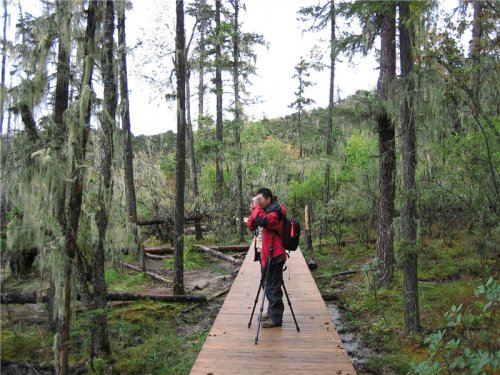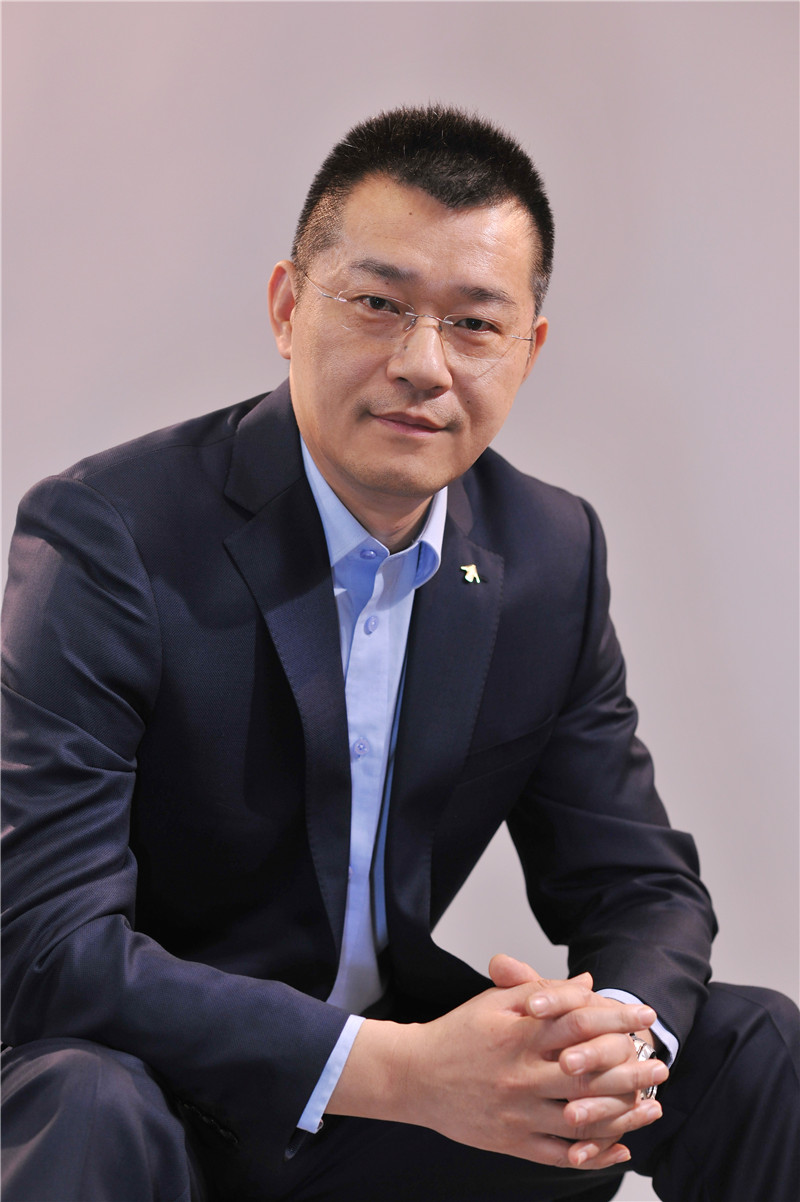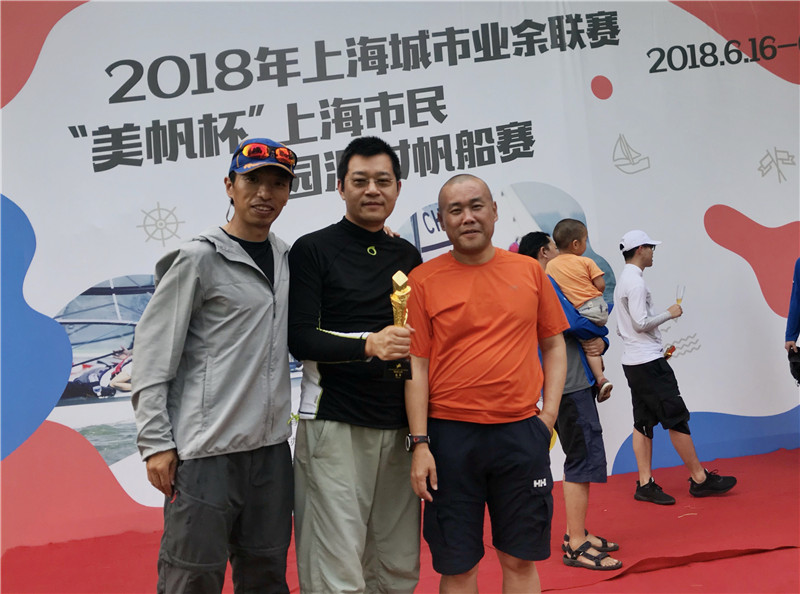Finding Joy on the Job

By Lei Na
If you are a frequent visitor to CEIBS’ Shanghai Campus, you might start to sense a certain rhythm: posters along the corridors are regularly updated, like ever-changing musical notes; when weekends approach, banners announcing various forums hang overhead like orderly piano keys; and when crowds of people gather on campus and seat themselves in a classroom or a conference venue, a feeling of peacefulness and comfort inexplicably surrounds them. But no matter how busy it is on campus during weekends, before Monday arrives everything is ‘magically’ restored to a state of cleanliness and tidiness – ready for another busy week to begin.
The ‘magician’ behind it all is the CEIBS Logistics Department. Out of curiosity, I recently paid a visit to their office for an interview with Senior Manager Cheng Fengxiang. When he first joined CEIBS nearly 20 years ago, everyone referred to him by his nickname, Xiao Cheng (Little Cheng). Since then, he has grown from being a junior staff member into a manager responsible for both the teaching support and engineering teams. And yet everyone continues to call him Xiao Cheng as it has now become both a term of endearment and well-earned respect. Whether you are preparing for courses or an activity at CEIBS, this is the most reassuring name you can hear.
During our interview, Xiao Cheng frequently spoke of the value of learning new skills and strategic thinking. “We were working on a project to upgrade the school’s audio-visual facilities. I couldn’t get it off my mind,” he recalls. “Finally, one day, I got up at 2AM and combed through every step in the project before organising them on four sheets of A4 paper.” As he speaks, it is clear Xiao Cheng is recalling a happy memory rather than complaining about the arduousness of his job.
 Working day by day, one can develop a certain level of intuition, accumulate experience and in the process become stronger and more confident. This might be one of the simplest ways of finding joy on the job. Rather than being a purely draining experience, this approach to working can also facilitate a kind of rejuvenation. A well-run department is able to recognise employees’ ideas and convert them into action, creating a win-win for both the organisation and the individual while at the same time generating value. For Xiao Cheng, the CEIBS Logistics Department is precisely this kind of platform.
Working day by day, one can develop a certain level of intuition, accumulate experience and in the process become stronger and more confident. This might be one of the simplest ways of finding joy on the job. Rather than being a purely draining experience, this approach to working can also facilitate a kind of rejuvenation. A well-run department is able to recognise employees’ ideas and convert them into action, creating a win-win for both the organisation and the individual while at the same time generating value. For Xiao Cheng, the CEIBS Logistics Department is precisely this kind of platform.
He also mentioned possessing a “heart full of wonder”, a phrase used by almost every CEIBS interviewee with whom I’ve spoken. One might feel at ease at work after he/she has dealt with a magnitude of tasks and projects for a decade or two. But behind that confidence lies a special kind of fascination, especially at the beginning of one’s career. Many CEIBS staff members have transformed this fascination into professional ethics, which has allowed them to develop lasting ways of self-improvement.
Read on for more from the interview with Xiao Cheng:
What were some of your earliest responsibilities at CEIBS?
I joined CEIBS in June 2000 and my job focused on logistics from the very beginning, supporting the school’s curriculum management by taking care of audio-visual equipment. At that time, teaching activities mainly took place in Academic Centre I and only basic facilities were available. There was only one projector, one power amplifier, and two microphones in each classroom. Things would often go wrong and dealing with the issues was a daily responsibility. In addition, due to a shortage of team members, we had to do everything personally, including preparing classrooms and working onsite at our conference venue.
How different are the facilities nowadays? Do you think they are sufficient?
The audio-visual facilities at CEIBS only really took shape after a decade of experimenting and there is a world of difference between now and then. In the classroom, every piece of equipment you can think of – the air conditioner, curtains, lighting, as well as audio and video – can all be controlled by a phone or an iPad. CEIBS has the best audio-visual facilities in China and is always being studied and copied by other business schools. But, equipment is just hardware. We are now thinking about ways to improve things like integration and management – it is easy to copy high-end and expensive facilities, but what is harder to learn about is the management process, logic, and culture behind it. These “invisible” elements are the things we are most proud of.
Now, we pay more attention to the stability of our teaching facilities. We utilise excellent operational software to visualise the school’s overall operations. For example, when the connection between a laptop and a projector fails, a ‘backstage roadmap’ can be checked on a mobile phone which enables us to more quickly assess the cause of a problem. When the effectiveness of a particular device declines more than 90%, the system will automatically send an email to remind us to replace it. Switching from passive maintenance to active action in order to keep teaching activities on track is what we have constantly been striving to do.
 What do you think the ideal teaching space is like?
What do you think the ideal teaching space is like?
I think the arrangement of audio-visual facilities always depends on the actual activity and a sense of space and comfort are the main points of consideration. Even over the course of several days at the school, participants may not have a chance to see how powerful our backstage equipment is, but they will feel how comfortable the classroom is and get a sense of whether it matches the surroundings. To me, comfort means that when participants sit in our classrooms, they can completely immerse themselves in their studies.
Recently, the Asia-Pacific Director of an office furniture manufacturer visited CEIBS Logistics Department in order to ask the question, “Why did CEIBS choose our chairs?” I told him that we had compared 70-80 different kinds of chairs before we made our choice. CEIBS classrooms are relatively compact and finished with a lot of teakwood. If we used hard-seat chairs, they could scratch the furniture; but soft-seat chairs provide the same level of functionality, plus they pose no threat to the surroundings. The director was impressed by our explanation. We make many similar observations during the course of our work. The key is how to make good use of these ideas and provide classrooms that are comfortable for professors and students.
Was there ever a particular moment that gave you a strong sense of achievement?
Quite a few. For example, you know the CEIBS eLab is located on the first floor of Building 5. Previously, that space was designed to house the Logistics Department, but after hearing that eLab needed an office, I proposed that we give it to them. This is because the buildings on the Shanghai Campus are very precise in their design, and so they differed from the style of the eLab space I had imagined and the Logistics Department space was the only suitable one we could find. I also found a designer for the eLab through one of our class coordinators. The Director of the eLab Professor Vincent Chang and I then visited CEIBS alumni company MoHen Design International and they were generous enough to design the project at no cost to the school.
 Working with CEIBS for almost 20 years, what are some of the most important things you’ve learned?
Working with CEIBS for almost 20 years, what are some of the most important things you’ve learned?
In serving CEIBS, the school has also helped me to grow. My personal development is inseparable from CEIBS’ development. The trust I have received from leaders and colleagues has provided me with a huge space where I can perform at my best. I often attend industry salons. Through talking with peers, I have learned that it isn’t easy to do renovation work at universities. However, CEIBS is an exception. We have an excellent operational mechanism, adequate funds, and smooth communication, all of which enable us to accomplish our intended plans.
How do you maintain a healthy work-life balance?
I have many hobbies. I love photography and traveling. Over the past few years, I have developed a love of yachting. The sport requires an extremely strong team spirit which inspires me to recreate that kind of spirit in the workplace. To balance work and life isn’t difficult for me. My wife is a wise woman who is able to arrange everything at home in a way that allows me to devote more time to my career and to developing my own hobbies.
What expectations do you have for the future?
I hope CEIBS will continue to have a brighter future, which will also lead to my own growth. I hope my team can better serve the school. I personally enjoy challenges; overcoming them involves a process of self-reflection, adjustment, and improvement. The key for the logistics team is to have a strong sense of responsibility and an enterprising spirit along with the courage to engage in self-reflection. “Conscientiousness, Innovation, and Excellence” is the CEIBS motto and it is also at the core of what our logistics team does.











